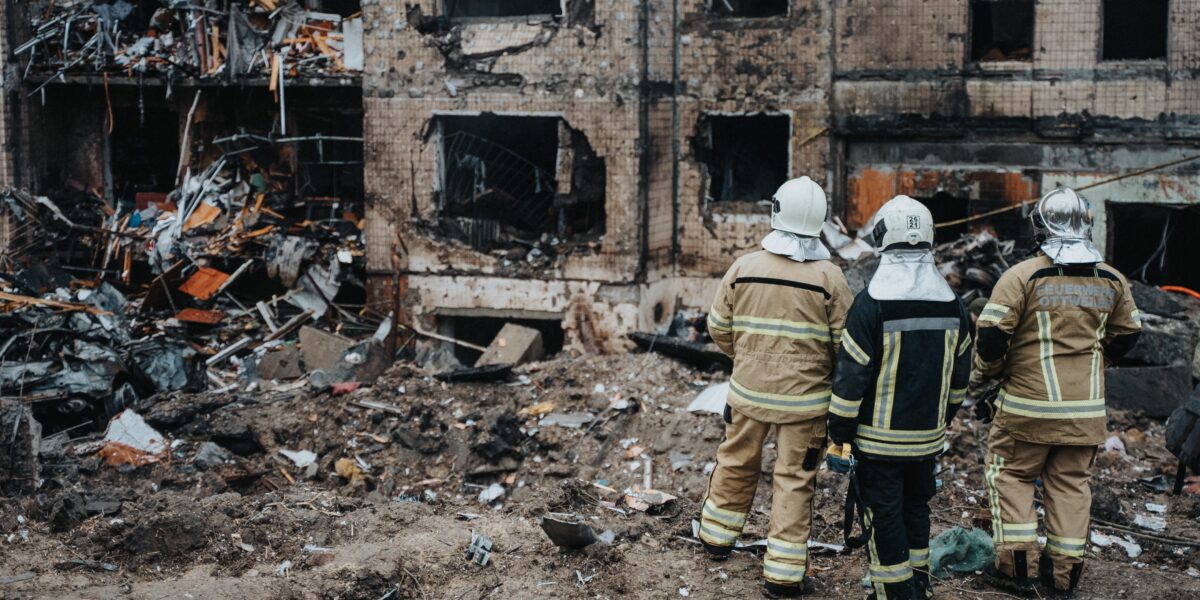Below, our colleague Maryna Naumenko from Helvetas Ukraine shares how she experiences everyday life in Kyiv.
Instead of being woken up by my alarm clock, these days I wake up to the loud, distinctive sound of a siren. Today, too, it will be the first of many. I take a deep breath and grab the phone. Since the beginning of the war, Telegram chats on my phone inform me on what the cause of the siren is: A fighter plane? Then the alarm won’t last too long. An Iranian drone? Or a missile attack? That would mean danger; the siren can sound for up to 3 hours for a missile.
These notifications give me the illusion of control. On the Telegram groups, I can track the estimated time of arrival or the trajectory of missiles across different regions in Ukraine.
The sirens also affect time management. When they go off, public transportation stops. It’s all about prioritizing safety over morning rituals now. Until the alarm is over, I am required to work from home, from a shelter. Instead of a morning coffee, I shoulder a backpack, water, snacks and a first-aid kit, and I head to my nearest shelter – down the stairs, because in an elevator we risk a power cut. The shelter provides seating areas, lighting and charging stations. I tackle the most critical tasks for the day first. This will ensure progress despite the interruptions.
Day after day, it becomes a mundane routine, devoid of emotional buildup. Since the beginning of the war, the fear has gradually dissipated; perhaps it’s a coping mechanism to help me endure.
One day, there might be a loud explosion nearby, and I’ll find myself feeling sensitive again for a while. Last winter, early in the morning, a missile hit near our house. My father called me, waking me up after a disruptive night filled with sirens, because he had spotted a missile flying in the direction of our neighbourhood. It was too late to run to the shelter; within moments, I witnessed a fragment of a destroyed missile flying near my window. A large, red piece, dangerously close, creating a deafening noise. My heart was beating fast, but I was unable to react. There are times when the lack of sleep is just too great, the exhaustion too strong.
Fortunately, that part of the missile landed on the top of an unfinished building a five-minute walk from my home.
I realize that a belief in being able to control the situation or make the right decisions is merely an illusion.

And yet: I try to enjoy life and be happy. There are things that give me strength, such as being with my family and living in my hometown. It’s comforting that the most important things, like family traditions, have remained unchanged for me. We still celebrate holidays together and relish every chance to gather as a family on weekends. It’s all about creating lasting memories and strengthening bonds through shared joy and togetherness. Many other Ukrainians around me feel the same way. They appreciate the present more than before and are more grateful, even for small things.
To release stress I play sports, I meditate and I draw. Work also became very important. Ironically, despite Helvetas’ aim to strengthen economic recovery amidst war, it is through work that I am able to forget about the war. To be a part of social projects that support people and revive businesses brings me immense joy. Having conversations with the program participants of our completed projects and hearing about the positive impact we made on their lives is rewarding and inspiring.
Before going to bed, I make a wish to avoid being startled by the sirens in the middle of the night. The hope remains that one day I can wake up and drink my morning coffee – finally, in peace.


